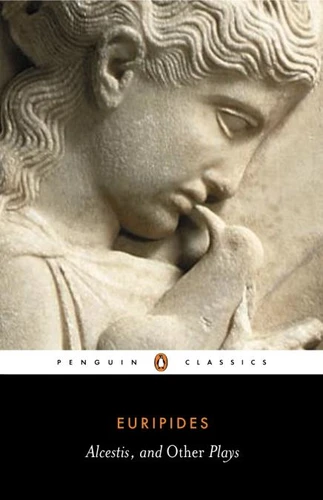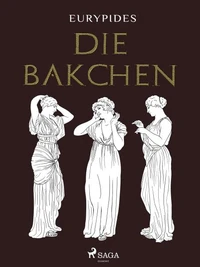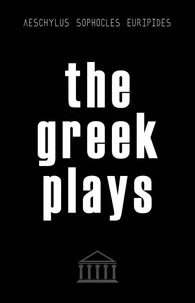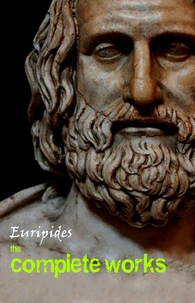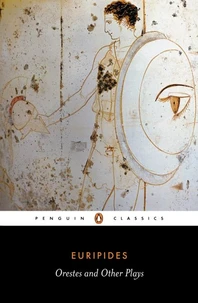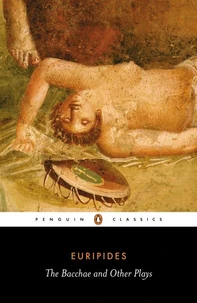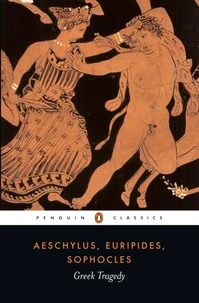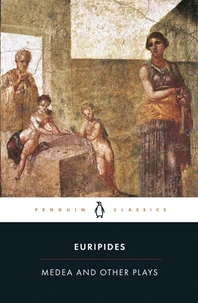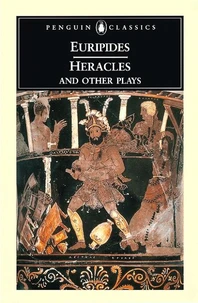Three Plays
Par :Formats :
Disponible dans votre compte client Decitre ou Furet du Nord dès validation de votre commande. Le format ePub protégé est :
- Compatible avec une lecture sur My Vivlio (smartphone, tablette, ordinateur)
- Compatible avec une lecture sur liseuses Vivlio
- Pour les liseuses autres que Vivlio, vous devez utiliser le logiciel Adobe Digital Edition. Non compatible avec la lecture sur les liseuses Kindle, Remarkable et Sony
- Non compatible avec un achat hors France métropolitaine
 , qui est-ce ?
, qui est-ce ?Notre partenaire de plateforme de lecture numérique où vous retrouverez l'ensemble de vos ebooks gratuitement
Pour en savoir plus sur nos ebooks, consultez notre aide en ligne ici
- Nombre de pages192
- FormatePub
- ISBN0-14-196196-1
- EAN9780141961965
- Date de parution26/05/2005
- Protection num.Adobe DRM
- Infos supplémentairesepub
- ÉditeurPENGUIN
Résumé
One of the greatest playwrights of Ancient Greece, the works of Euripides (484-406 BC) were revolutionary in their depiction of tragic events caused by flawed humanity, and in their use of the gods as symbols of human nature. The three plays in this collection show his abilities as the sceptical questioner of his age. Alcestis, an early drama, tells the tale of a queen who offers her own life in exchange for that of her husband; cast as a tragedy, it contains passages of satire and comedy.
The tragicomedy Iphigenia in Tauris melodramatically reunites the ill-fated children of Agamemnon, while the pure tragedy of Hippolytus shows the fatal impact of Phaedra's unreasoning passion for her chaste stepson. All three plays explore a deep gulf that separates man from woman, and all depict a world dominated by amoral forces beyond human control.
The tragicomedy Iphigenia in Tauris melodramatically reunites the ill-fated children of Agamemnon, while the pure tragedy of Hippolytus shows the fatal impact of Phaedra's unreasoning passion for her chaste stepson. All three plays explore a deep gulf that separates man from woman, and all depict a world dominated by amoral forces beyond human control.
One of the greatest playwrights of Ancient Greece, the works of Euripides (484-406 BC) were revolutionary in their depiction of tragic events caused by flawed humanity, and in their use of the gods as symbols of human nature. The three plays in this collection show his abilities as the sceptical questioner of his age. Alcestis, an early drama, tells the tale of a queen who offers her own life in exchange for that of her husband; cast as a tragedy, it contains passages of satire and comedy.
The tragicomedy Iphigenia in Tauris melodramatically reunites the ill-fated children of Agamemnon, while the pure tragedy of Hippolytus shows the fatal impact of Phaedra's unreasoning passion for her chaste stepson. All three plays explore a deep gulf that separates man from woman, and all depict a world dominated by amoral forces beyond human control.
The tragicomedy Iphigenia in Tauris melodramatically reunites the ill-fated children of Agamemnon, while the pure tragedy of Hippolytus shows the fatal impact of Phaedra's unreasoning passion for her chaste stepson. All three plays explore a deep gulf that separates man from woman, and all depict a world dominated by amoral forces beyond human control.

